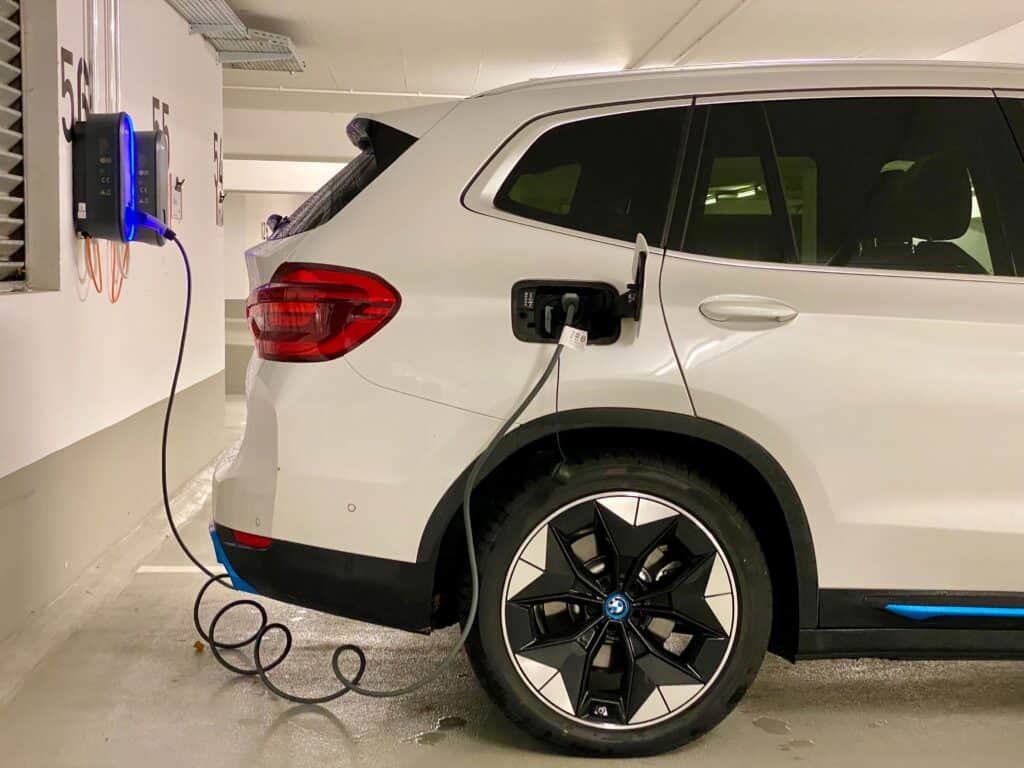
Can You Tow An RV With An Electric Vehicle?
Despite how fast Teslas seem to be popping up these days and that electric vehicles are slowly becoming more prominent on the roads in the United States, we have a long way to go to our carbon-neutral goal. Reuters claims that not even one percent of the vehicles on our roads are electric.
Various concerns give consumers pause when buying electric vehicles, like high prices and difficulties with charging. But RV lovers have their own specific questions. Are electric cars and trucks powerful enough to tow travel trailers? And if so, for how long?
Recent models with higher towing capacity and longer ranges finally make the EV and RV combo possible!
The time is now! 2022 has seen the release of more electric pickup trucks than we could have ever imagined. And what’s more, these pickups can haul some weight. Big names like Ford, Hummer, and Chevrolet have all released electric-powered trucks. Startups such as Alpha and Atlis claim to follow suit soon.
What’s more surprising is that it’s not just the electric trucks with towing capacity. There are other options for trailer towers as well, like the “world’s first electric adventure vehicle,” Rivian’s R1S. Even smaller still are options like the Tesla Model X or the Volvo XC40.
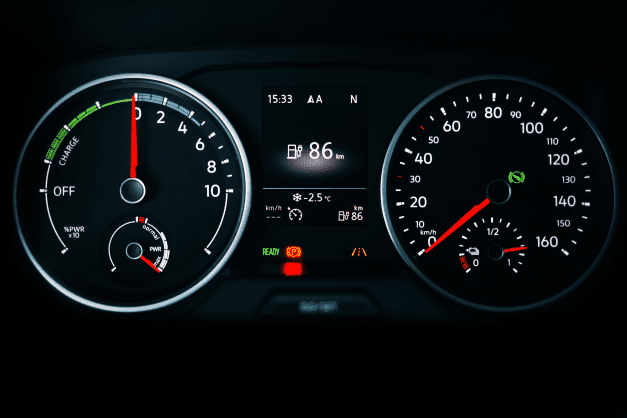
How is the range affected when towing?
Perhaps what scares people the most is the effect that towing can have on the range of EVs. This isn’t something unique to electric cars. Gas-powered vehicles will lose fuel efficiency when pulling extra weight too. According to It Still Runs, gas mileage can drop anywhere from 10-35%, depending on the weight of your trailer.
The same applies to electric vehicles. The problem is that filling up your tank with gas is much easier than finding a charging station. Since electric towing cars are still relatively new, there’s not a lot of information about how weight affects range.
Inside EVs recently reported that one owner of the F-150 Lightning dropped some details about towing a 6,000-pound Airstream trailer and its effect on the range of his truck. He mentioned that there was about a 50% reduction in range. The good news, however, is that Lightning’s computer factors in the weight being towed and auto-calculates the correct battery capacity, so you’re not left in the dark.
Similarly, Rivian lets their customers know up front that towing around 11,000 pounds, which is the maximum capacity for their R1T, will cut the range of the battery by approximately 50%. This truck also updates in real-time what your true range is, considering the weight and even how fast you’re accelerating.

What does towing capacity look like in electric vehicles?
The average large travel trailer weighs anywhere between 6,000 and 10,500 pounds. So, can electric vehicles pull that much weight?
The new electric trucks on the market can handle it! The Chevrolet Silverado EV and the Ford F-150 Lightning can tow up to 10,000 pounds, covering most travel trailers. The Rivian R1T is rated for up to 11,000 pounds. Smaller campers may pair well with the Rivian R1S or Hummer EV, which can pull around 7,500 pounds.
If you have something a little smaller, like a teardrop, A-frame camper, or pop-up camper, you may be able to get away with a smaller electric vehicle. Tesla Models Y and X can tow 3,500 and 5,000 pounds, respectively. Volvo XC 40 Recharge has a towing capacity of 3,300 pounds, and the VW ID.4 can pull 2,700 pounds. If you’re open to purchasing a hybrid, there are even more models that can pull in the 3000-6000 pound range.
Are fully electric RVs next?
Those who prefer a motorhome versus a towable RV won’t be left out for much longer. Winnebago revealed their electric RV concept at an RV show in early 2022. In June, they announced that members of their ATG team completed a 1,380-mile road trip in the All-Electric RV. They are now working to extend the range on the camper before sales go live to increase early adopters.
Winnebago isn’t alone, either. Just one day after they announced their concept, Thor Industries followed suit. According to reports, the Thor Vision concept will be able to travel 300 miles on one charge and include:
- Battery pack
- Solar roof
- Other emission-free features
As battery technology continues to evolve, we hope to see electric options for RV campers continue to grow.
For help mapping out your route for your next RV getaway, look no further than RV LIFE Trip Wizard. This online planning tool makes it easy to plan an RV-safe route. It can also locate interesting sites along the way, all according to your travel preferences. Get RV LIFE Trip Wizard with its accompanying RV LIFE App, and start planning your adventure today!
Related articles:


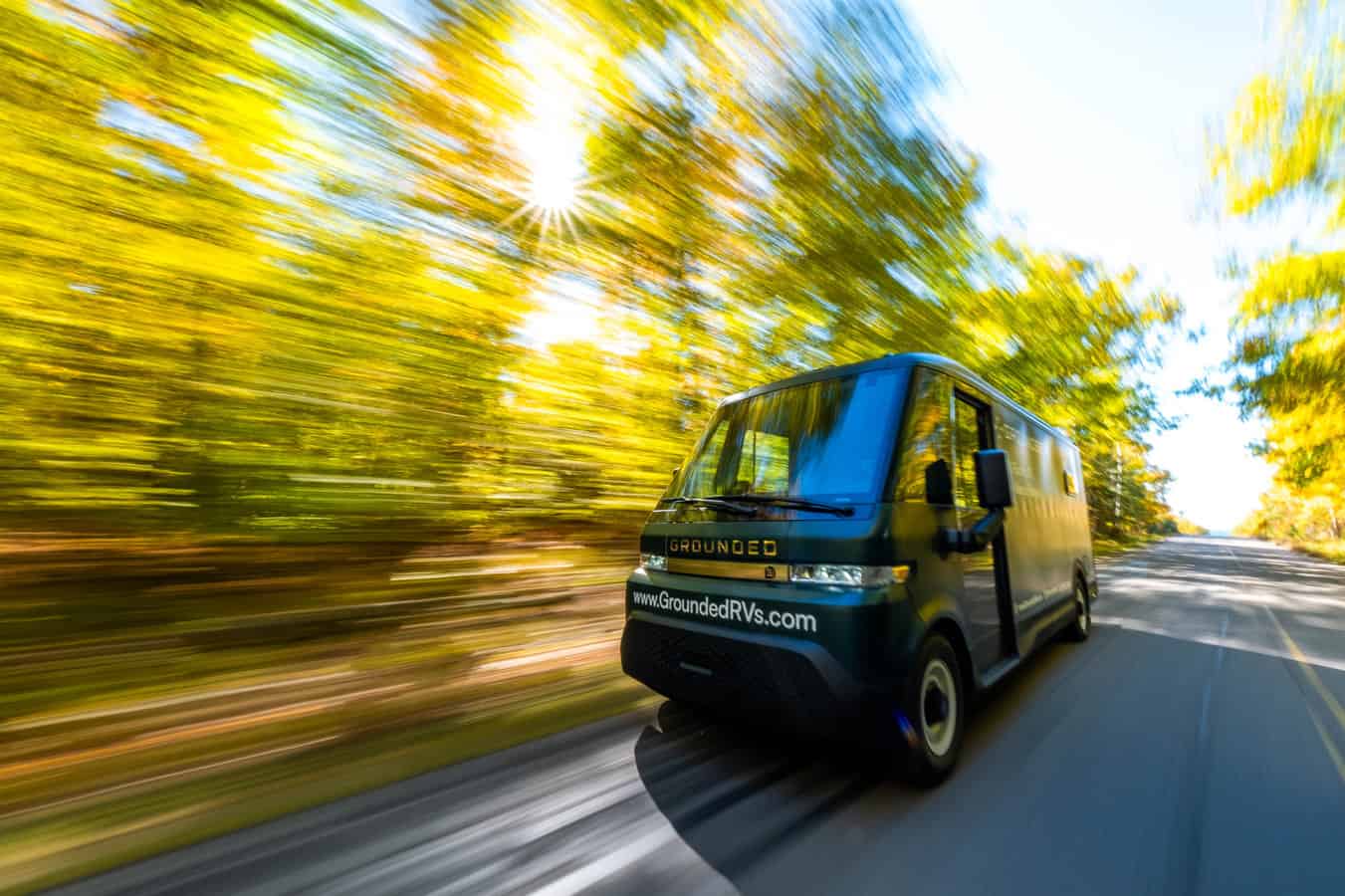
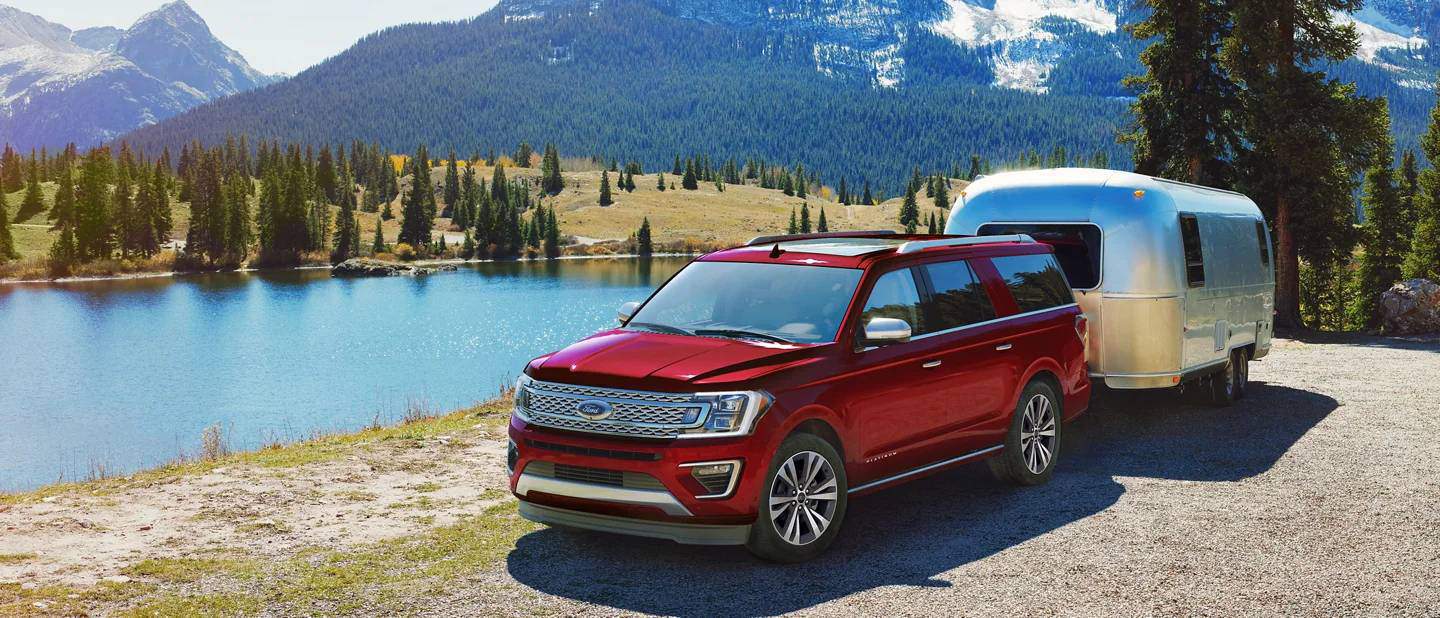
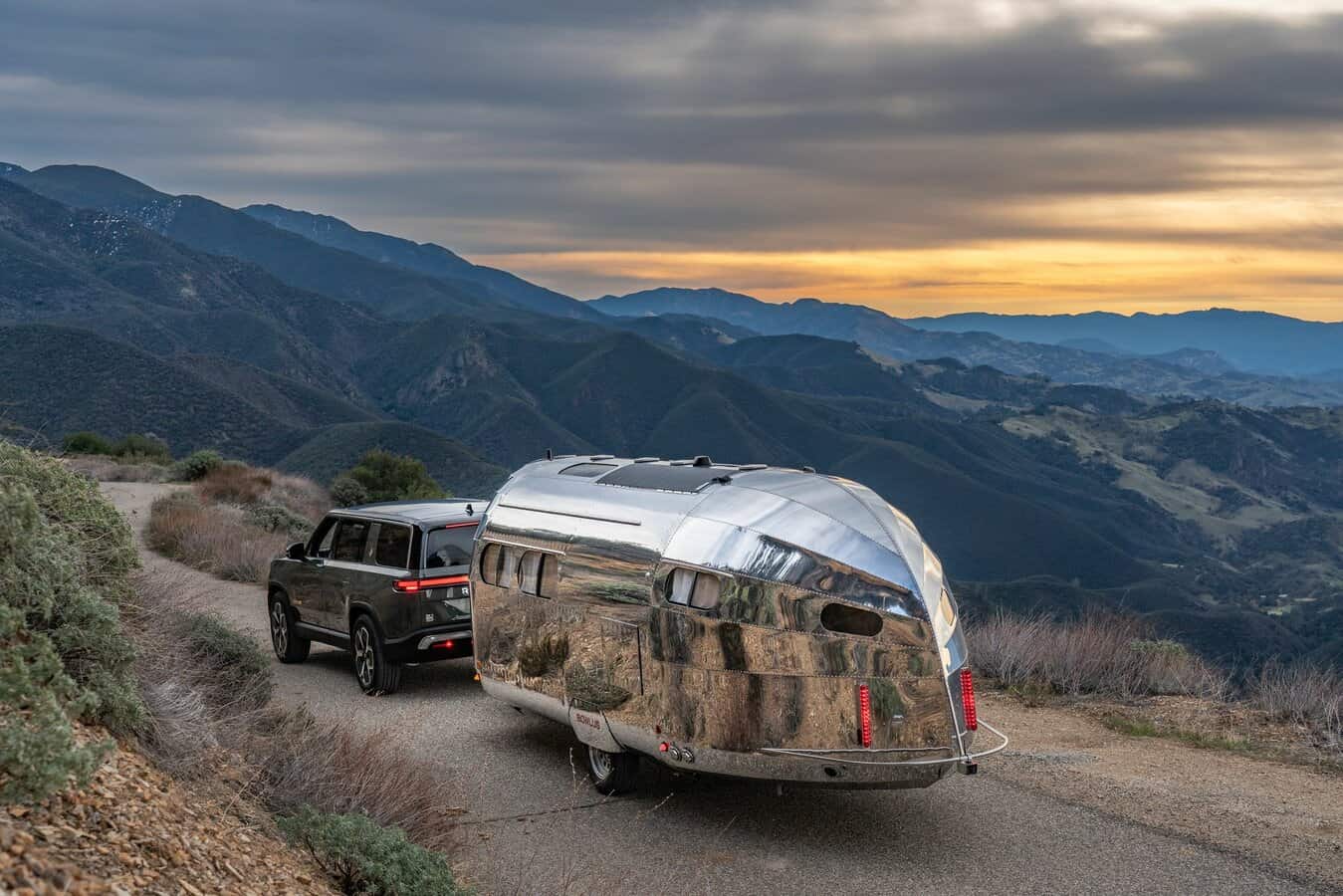
IMHO a hybrid is the only way to go at this point. The grid is a long way off from being able to handle a rapid use of EV.s. Campgrounds will undoubtedly raise rates and or apply a surcharge for EV charging and the weathers effects on EV batteries is a problem that has to be dealt with. New tech is fun but there is a lot of growing pains that come with it.
Electric vehicle towing will definitely be feasible. Already trailer manufacturers are looking at electrically powered trailers. There are patents filed on self-powered trailers that are electrically powered and towbar steered, similar to farm trailers. These will be towable by any vehicle no matter the size, as there is little to no tongue weight and with regenerative braking that puts power back into the batteries. This is the future and it is already upon us.
Great news! If they have the vehicle to grid /home as many new cars do, it will act as a backup house generator or can time shift- selling electricity back to the grid (charge at cheap rates and sell back at higher rates), this reduces peak demand (high pollution) for the utility. This can help pay for the RV as it is parked at your home.
We currently have a 34 Foot class A and we tow a Kia Soul EV with tow dolly and it is incredible to be able to park the gas guzzler for long periods and travel pollution free for our daily needs/travel.
We have plans to eventually replace the RV with a EV class A when available in about 5 or so years.
The cost to charge the Kia is based on about 5.5 miles (9Km) gained per hour at 12 amps. Depending on the local rate, it is only 6-18 cents per hour to charge and get the above range added. Be aware that the Kia is a front wheel drive which allows towing with a tow dolly.
What we really need to know is when will they make an EV we can tow 4 wheels down. So far I cannot find one. My next car will be an EV, but it must be able to be dingy towed with 4 on the ground.
On the other side of the coin, can any EVs be flat towed, preferably without special procedures or equipment?
What EV vehicles, if any, can be flat towed behind a motorhome?
Hey Ms Jennifer Good Tuesday Morning and Happy July 4th Alex here. Just wondering if these electric or electric hybrids will be able to be towed on all 4’s or will need a tow dolly or trailer?
Thanks
Alex
I’m very curious as to what plug in hybrids can tow 3000-6000lbs. The most I’ve seen for a phev is 3600lbs with the Chrysler Pacifica hybrid.
Towing and range, towing and range.
If you want EVs to be taken seriously, start talking about recharge time.
That’s where they all fall apart.
TFL did a real world test towing with a Ford Lightning max tow package and a 6000# travel trailer and range was reduced to less than 33% 95 miles approximately with a full 100% charge. I would never tow my trailer with that kind of range.
Price is the big question, everything sounds good on paper but what are the real numbers
How lon g does it take to “fill up an EV “ compared to a a stop for gas? We drive 400 miles to the beach from where we live. This will force us to spend a night en route going and returning. EV’s are not ready for prime time
The electric vehicle’s and the chargers have come a long way. I have an EV6(unable to be towed) and use my home charger but out and about there are chargers and it takes 18 minutes to “fill” my tank.
What about towing an electric vehicle with your motor home? I hear electric vehicles are much heavier.
Any thoughts on EV’s as toad’s?
The best use for an electric vehicle is as a toad.
I saw a Tesla pulling a teardrop in a campground recently. The camper used the 50-amp outlet to charge his Tesla and one of the other outlets to power his teardrop. That amounted to a free charge for his car.
Not Free!! The campground owner had to pay for it.
Absolutely right!!! and at some point, probably sooner than later, they will charge for charging or ban you from doing it at your campsite. Too many Woke people out there that have NOT thought all of this through. I will continue to power my vehicles and chain saws with dead dinosaur juice.
There’s many reviews of these ev trucks pulling heavy loads up the Ike Gauntlet in Colorado. And from what I’ve seen, while they have power up the ying yang, they lack serious range. 88 miles to one charge pulling the “gauntlet” with a heavy load. Increase the range, put charging station every place there’s fuel pumps and make the charging stations pull through. Then maybe it’ll be something to consider. Until then, I think I’ll stick with my Hemi.
Electric vehicles have shown the problems with trying to go to alternative energy before it’s ready. Just like this current trend to wanna have a war in petroleum and eliminate it yet the alternative is not even nearly available. RV’s with their weight and size are not a good match for electric propulsion due to battery issues. With less than 2% of all vehicle sold in the US, being electric, this is going to be a much longer process to even consider, with electrical grid problems we now have. The only electric RV so far are basically vans, and that’s not sufficient for families who want to enjoy the RV experience. Too soon, too expensive, and not realistic at this time.
Some electric motors can generate electricity when they are rotating by another source. So can an electric vehicle generate electricity why’ll being towed behind a
motorhome? If hat can happen an electric pickup would be of interest to some RVers.
What is the outlook for EV “toads?”
I live full time in a 40-foot fifth wheel. My tow vehicle is a Chevy 3500 HD with the 6.6L diesel engine. I would consider switching to an electric truck only when everything is equal between electric and diesel:
1) There are as many electric charging stations as diesel pumps
2) It takes only as long to charge the batteries as it does to fill the tank
3) It will cost less to charge than to fill the tank
4) The electric truck can tow the same weight (the 3500 HD is rated at 35,000 pounds)
5) The electric truck can do the same things (climb hills, accelerate to speed, etc.) equally well as a diesel
6) The electric truck has the same fuel range as a diesel
Considering the current state of the technology and infrastructure set up to handle electric vehicles, this may not happen for at least 20 to 30 years, maybe even more. Until then, I’m happy with my diesel truck (but not happy with fuel prices).
The air conditioner will take a lot of the cruising range much lower and the heater is not engine heat , that is also a heavy load on battery power, It a Shame but nothing is free.
Is there a “toad” EV available for motorhome towing with all 4 wheels down!
Current successful high speed rail trains implement a healthy combination of the diesel/electric hybrid model (Brightline implements these fairly well).
Pros
Being able to use existing resources/infrastructure
Reduced mining of the materials required for batteries which usually requires similar environmental effects as drilling for oil (with those materials from what I understand being more limited unless we transfer into aluminum based batteries)
No range limitations
Resource extension through using less oil and possibly fewer battery related materials per vehicle (could one full ev rv have its battery material extended across four or six hybrid models)
Functionality could possibly emulate current pure engine models more closely than a pure ev
Cons
I don’t think any of these exist meaning higher upfront cost as they’re introduced
Would still require some dependency on oil
The RKS MOTIVE is a light weight toy hauler with the power capability and capacity to recharge your EV truck.
I’m very interested in where the EV market is going with regard to vehicles that can be towed by Class-A, -B (maybe), and -C motor homes. It seems like most should be towable; assume no transmission lubrication or cooking issues, I haven’t seen exactly why they can’t, but understand that (almost?) none are.
In ten years, or less, electric vehicles will be a dredge on the market. Overloaded power grids, black outs and brown outs, frustration with finding charging stations and waiting in line for a charge that takes 30 minutes or more., a huge increase in the cost of electricity, getting stranded in a traffic tie up or the boonies, difficulty and cost of replacing or disposing of the electric batteries, all these factors and more will erode the market. My advice; stay away from electric vehicles except possibly for a second errand car that you’re willing to send to the junk yard at the end of its life.
With a little engineering and some software upgrades, a travel trailer with a roof covered in lightweight, flexible solar panels might extend the tow vehicle’s range. On travel days, the TT could shift from recharging its own lithium house batteries to recharging the TV’s EV batteries. Maximum efficiency might be to use a 48v solar system with a 48v to 12v DC converter for the house batteries. Just an interim step until PV paint is available on every EV and RV!
What other EV vehicals can be flat towed that might be under 5000#?
I would say that I do not think electric RVs are not going to have a whole lot of choices of where to go, or how far, for a long, long, time, what with lack of charging stations. Which means the vehicle will have to carry its own charging station – which is not going to be plug in, charge for 15 minutes, take off again. From what I know recharging one of these rigs could take the owner up to 24 hours to fully recharge it. And without a charging station handy that means a fossil fuel generator, so still going to use fossil fuel. And manufacturing batteries means a LOT of pollution. There are other options rather than electric, and I believe a lot are much better than electric, but electric seems to be what is being concentrated, for now anyway. I’ll pass on an electric vehicle for now.
Pulling a trailer is the easy part of towing, Controlling the unit in an emergency stop or in high wind conditions is the hard part. Manufacturers are good at bragging how much their vehicle can tow,, not one mentions whether it has the frame, brakes and control to stop it in an emergency, nor control sway incurred y wind or big trucks passing. You are performing a disservice by publishing manufacturers specs to unsuspecting consumers.
Is there a way to plug an electric vehicle into the post at an RV park for recharging, or does it require a dedicated, specially equipped plug in?
I want to see an electric vehicle that can pull my 30 ft trailer from St. Louis to Rapid City in less than 24 hours total.
What about the other end of the MH, flat towing a hybrid or totally electric vehicle? I understand there are some hybrid Fords that can be flat towed, but are there others as well?
The question should be can electric cars be flat towed behind RV?
Atlas and Alpha will never product a single vehicle they are frauds. You also failed to include the 500 mile range of the Tesla Cybertruck, which even if cut in half to 250 miles would be equal to my F350 towing now. As most RVer’s rarely go more than 400 miles in a day while towing, a single recharge will get you to your destination with ease.
Interesting information on towing but I’m much more interested in can any of them be flat towed behind my motorhome?
The real question is will there be pull through charging stations in the future? Right now you would have to unhook your trailer, charge up, and then hook up and go. Hopefully they get smarter when planning future stations. Otherwise it could be a showstopper for some. I have a small teardrop and can easily drop in a parking lot. But imagine if you have a fifth wheel, or there is no parking, or???
I’ve recently put a deposit on a Cybertruck and probably won’t see it until 2026. Maybe I’ll change my mind on that and get something else like a Ram EV but it will be 3-4 years out regardless. I really hope this issue is resolved by then.